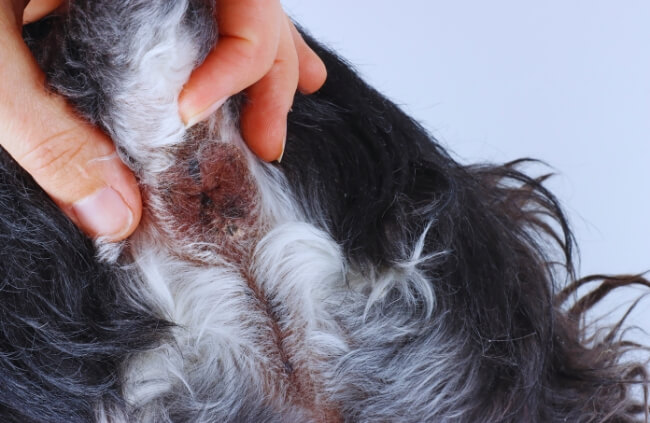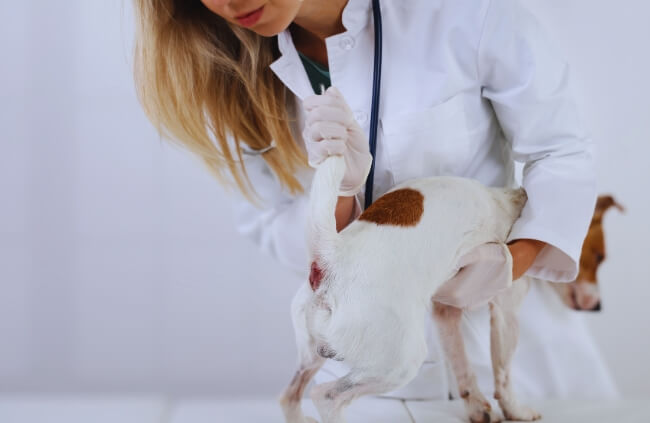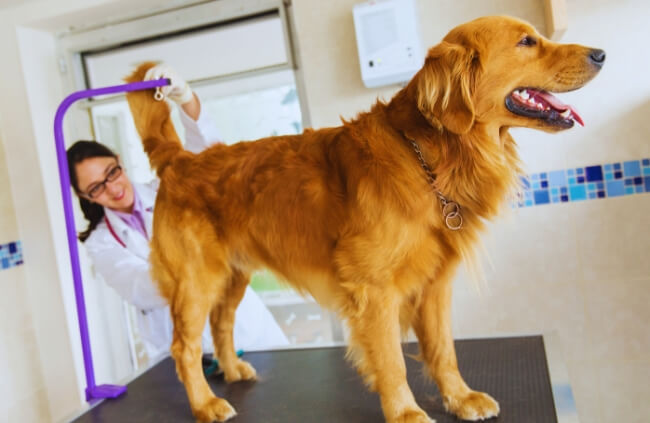Are you a dog parent worried about your furry friend's health? One thing you may have never thought about is the issue of an infected anal glands in dogs.
While rarely discussed, this issue is very common. To learn more about why it happens to prevention and treatment continue reading on.
More...
What is an Infected Anal Glands in Dogs

A dog infected anal gland is also known as anal sac disease. It occurs when the small glands located near the anus become inflamed or infected. These glands are used for communication and marking territories when a dog defecates.
If the glands become blocked or infected, it can result in pain and discomfort for your dog. Moreover, they can potentially lead to health complications, including a ruptured anal gland in dogs.
How Common is an Anal Gland Swelling in Dogs?
Anal gland swelling in dogs is more common in certain breeds, including small breeds and those that are overweight. However, dogs of any breed or size can develop this issue.
If you are a dog owner, it is essential that you are aware of the signs and symptoms of an anal gland rupture in dogs to ensure prompt treatment.
What Causes an Dog Anal Gland Swelling in Dogs?
Below are the most common factors that contribute to infected anal glands in dogs. By understanding these factors, you can take proactive steps to prevent an infection.
- Poor Diet
- Obesity
- Genetics
- Underlying Health Conditions
- Environmental Allergies
- Poor Hygiene
- Insufficient Exercise
Prevention of an Infected Anal Gland
Dog anal gland infections can occur unexpectedly. Nevertheless, there are some things you can do to reduce the risk. These include:
- Regular grooming
Regular grooming is essential for hygiene and preventing dog infected anal gland issues. Brushing your dog's coat regularly will remove excess hair and debris that can contribute to blockages. Additionally, keep the fur trimmed around the anus.
- Good Hygiene
Practising good hygiene habits can help reduce the risk of a dog infected anal gland. After your dog defecates, gently wipe their anal area with a damp cloth to remove any residue. This will help to prevent irritation and infection. Avoid using chemicals or wipes.
- Maintaining a healthy weight
Maintaining a healthy weight in your dog is crucial for preventing a variety of health issues, including infected anal glands. Excess weight can put added pressure on the anal glands, making them more prone to blockages and inflammation.
Additionally, a healthy weight contributes to overall wellness, promoting proper bowel function.
- Provide a diet with adequate fibre content
A diet rich in fibre is beneficial for promoting regular bowel movements. This helps to prevent the buildup of material in the anal glands and expresses the glands naturally. Plus, regular bowel movements ensure the anal glands are regularly expressed. This helps reduce discomfort and inflammation.
- Manual anal gland expressing
Some veterinarians recommend manually expressing your dog's anal glands. This can often be done by your groomer. The process involves applying gentle pressure to the glands to help release any built-up material.
- Regular Exercise
Regular exercise is not only essential for your dog's overall health, but also promotes proper bowel function. Keeping your pup active helps to prevent constipation that can contribute to a dog infected anal gland.
- Regular Veterinary Check-ups
Schedule regular check-ups with your veterinarian to monitor your dog's overall health. Vets can often address any potential issues, including dog infected anal glands, early on.
Signs and Symptoms of Dog Infected Anal Glands

Recognising the signs and symptoms of dog infected anal glands is crucial for prompt intervention. If you observe any of these signs or symptoms in your dog, it is crucial to schedule a veterinary appointment promptly. Here is what to look out for:
- Scooting or Dragging
One of the most common signs a dog has an infected anal gland is when they scoot or drag their bottom along the ground. This type of behaviour is a dog’s way of trying to relieve discomfort.
- Excessive Licking or Biting
If you notice your dog excessively licking or biting around their anus, it could be a sign of an infected anal gland.
- Foul Odour
Anal glands release a fluid with a foul smell. If you notice a foul odour coming from your dog's rear end, they could have an infected or ruptured anal gland.
- Swelling or Redness
Dog infected anal glands are usually swollen and red. Inspect your dog's anal area for visible swelling and redness.
- Discharge or Bleeding
In severe cases of dog infected anal glands, you may notice discharge or bleeding. This can indicate the presence of an abscess or rupture. In this case, immediate veterinary attention is required.
Dog Infected Anal Glands Treatment
If you suspect you are dealing with a dog infected anal glands, it is essential to get veterinary care promptly. Treatment is necessary to help your dog feel better.
Your vet may need to express the anal glands to relieve pressure and remove the infected material. In some cases, they may prescribe antibiotics or anti-inflammatory medications.
Severe or repeated cases may require more extensive treatment, such as surgical removal of the anal glands.
Risk of Death

Infected anal glands are typically not life-threatening. However, untreated cases can lead to complications. In rare instances, untreated infections can spread to other parts of the body. This can result in more serious health issues, including sepsis.
When to See a Veterinarian
If you notice any signs or symptoms of an infected anal gland, such as swelling, redness, or discharge, it is crucial to see your vet right away. Your veterinarian can assess the severity of the infection and recommend appropriate treatment.
Discuss long-term management strategies for your dog. This could entail regular anal gland expression schedules, dietary adjustments, or lifestyle changes.
Infected Anal Glands in Dogs
Being a pet owner is a wonderful experience. However, there come times that can be stressful. Infected anal glands are a common but often overlooked health issue that can cause distress for your furry friend.
By understanding the signs, symptoms, and treatment options of dog infected anal glands, you can help your dog stay happy and healthy.
Here's another article to help you have a healthy furry friend:
